Stuart Aken's Blog, page 344
October 13, 2010
Review of The Descent of Woman by Elaine Morgan
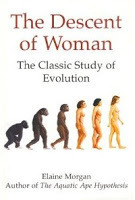 This study of an alternative evolution for humankind is, of course, now almost history itself. But, and it's an important 'but', many people are ignorant of the ideas expounded by Elaine Morgan and remain rooted in the now discredited version of evolution as propounded by the earlier male anthropologists. The andocentric tradition is here thoroughly examined, questioned and found seriously wanting. Not only does this old fashioned tradition leave questions unanswered, but it fails to even ask many of the questions essential to the understanding of how we became what we are.Morgan, a mere woman in a man's world, has the temerity to ask, and to answer, a good number of these previously ignored questions. In the process, convincingly removes the foundations for the male centred and inspired evolutionary route, positing a female led series of changes and supporting her hypothesis with well constructed and thoughtful arguments.This book was variously trashed, belittled and ignored by the established authorities of the day. Having spent their academic lives propounding and upholding a tradition built on shifting sand, the male doyens of the science were loth to accept that a mere woman, not even an anthropologist, might have something worthwhile to bring to the debate. Science, of course, when considered by those with the closed minds of tradition, is every bit as dogmatic and prone to self-perpetuating lies, mistruths, folklore and myth as any organised religion. Only relatively recently have a number of anthropologists accepted that Morgan's hypothesis may actually have some serious contribution to make about our understanding of how, why and when Homo Sapiens rose above his hominid cousins to become the outstandingly successful modern mammal he now is.The Descent of Woman is a work of serious, considered ideas presented with some humour and a light touch (one of the reasons given by some academics for dismissing it out of hand). It is accessible and engaging as a book and the ideas proposed are founded in reason and built on rational thought. I would love to see this book made mandatory for all students of anthropology and for those blind leaders of the more extreme religious cults. In time, with fresh minds, open minds, the new thinkers will hopefully overturn the blinkered and self-serving misinformation propagated by the closed-minded, prejudiced and occupationally neutered academics who have, for so long, preached a gospel of evolution based on a false appreciation of man and woman's place in the rise of humankind from ape.I urge all women and men to read Elaine Morgan's seminal work: it will provide much food for thought, conjecture and, with luck, a more positive outcome for society's attitude to women and their role and position within the human race.Buy in UKBuy in USABuy worldwide
This study of an alternative evolution for humankind is, of course, now almost history itself. But, and it's an important 'but', many people are ignorant of the ideas expounded by Elaine Morgan and remain rooted in the now discredited version of evolution as propounded by the earlier male anthropologists. The andocentric tradition is here thoroughly examined, questioned and found seriously wanting. Not only does this old fashioned tradition leave questions unanswered, but it fails to even ask many of the questions essential to the understanding of how we became what we are.Morgan, a mere woman in a man's world, has the temerity to ask, and to answer, a good number of these previously ignored questions. In the process, convincingly removes the foundations for the male centred and inspired evolutionary route, positing a female led series of changes and supporting her hypothesis with well constructed and thoughtful arguments.This book was variously trashed, belittled and ignored by the established authorities of the day. Having spent their academic lives propounding and upholding a tradition built on shifting sand, the male doyens of the science were loth to accept that a mere woman, not even an anthropologist, might have something worthwhile to bring to the debate. Science, of course, when considered by those with the closed minds of tradition, is every bit as dogmatic and prone to self-perpetuating lies, mistruths, folklore and myth as any organised religion. Only relatively recently have a number of anthropologists accepted that Morgan's hypothesis may actually have some serious contribution to make about our understanding of how, why and when Homo Sapiens rose above his hominid cousins to become the outstandingly successful modern mammal he now is.The Descent of Woman is a work of serious, considered ideas presented with some humour and a light touch (one of the reasons given by some academics for dismissing it out of hand). It is accessible and engaging as a book and the ideas proposed are founded in reason and built on rational thought. I would love to see this book made mandatory for all students of anthropology and for those blind leaders of the more extreme religious cults. In time, with fresh minds, open minds, the new thinkers will hopefully overturn the blinkered and self-serving misinformation propagated by the closed-minded, prejudiced and occupationally neutered academics who have, for so long, preached a gospel of evolution based on a false appreciation of man and woman's place in the rise of humankind from ape.I urge all women and men to read Elaine Morgan's seminal work: it will provide much food for thought, conjecture and, with luck, a more positive outcome for society's attitude to women and their role and position within the human race.Buy in UKBuy in USABuy worldwide

Published on October 13, 2010 08:00
October 12, 2010
Whether to use Your or You're
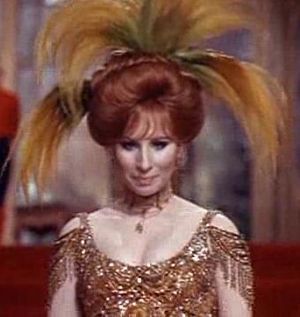 Image via Wikipedia
Image via WikipediaYour: is the possessive form of you; something belonging to you. 'Can I have your autograph, You're: contraction for you are. 'You're a fool if you think I'm giving anything to you.'

Published on October 12, 2010 08:00
October 11, 2010
Author Interview with Monique Martin
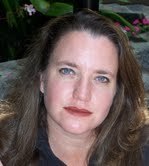 Monique Martin, a graduate of USC's Film School, is a full-time freelance writer. In addition to writing documentaries, industrial films and screenplays, Monique has just published her first novel, Out of Time.
Monique Martin, a graduate of USC's Film School, is a full-time freelance writer. In addition to writing documentaries, industrial films and screenplays, Monique has just published her first novel, Out of Time.Tell us about Out of Time in a few sentences.
Out of Time is paranormal and time travel romance filled with action, adventure and suspense. A professor of the occult and his assistant are transported back to 1929 New York City
where the underworld of crime is run by the underworld of demons. They struggle to survive
the demons and each other until the next lunar eclipse can bring them home
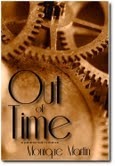 What qualities do you need to be a successful writer?
What qualities do you need to be a successful writer?I think understanding what makes people tick is the key. Why do we love each other? What makes you hate someone? And, having a thick skin (rejection isn't any fun) helps too. You're going to get knocked down. If you want to succeed, you have to get back up and keep swinging. Being slightly insane doesn't hurt.
What is your working method?
I just let it all out. I find if I edit as I go, I kill my flow. It's so easy to start obsessing of the smallest thing - over one word out of 100,000 and lose yourself in that. So, I have to just let what comes, come and clean it up later.
What is the single biggest mistake made by beginners to writing?
They let their excitement get the better of them and forget that after the art comes the craft. Writing is rewriting. Your first draft shouldn't be your last.
How did you come to write this particular book?
I think I was watching a documentary about Al Capone or some other gangster from the 1920s. I've always been a fan of the supernatural, the paranormal. And, I just came up with the "what if" idea of the underworld of gangsters actually being ruled by the Underworld of demons. I just loved that idea and slowly the characters and the rest of the story grew from that.
If you have a favourite character in your novel, why that particular one?
Oh, that's a Sophie's choice. I love them all for different reasons. I think Simon Cross is my favorite. He's the hero. I have a bit of a crush on him. But, other than the obvious answer, there's a very small character named Frank. He's not really that integral to the part, but he made me look at history in a new way. He made me see the period I was writing about in context. 1929 didn't just appear, it was borne of the decade before it and the scars from WWI were still raw. Frank brought that home for me.
How can people buy your book?
Out of Time is available in Amazon's Kindle Store both in the US and the UK. It's also available through Smashwords and ebook retailers like Barnes and Noble, Apple's iBookstore and Diesel eBooks.
To what extent are grammar and spelling important to a writer?
Very. Now, that said, a good proofreader can help writers who aren't the most skilled grammarians. But, in the final edit, it's got to be right.
How much revision of your MS do you do before you send it off?
Revisions can be a Möbius strip if you aren't careful. It's easy to get caught up in rewriting your rewrite over and over. Just a bit more! I know it can be better! At some point you have to let it go. I probably did three full revisions before I could let Out of Time out of my sight.
Where and when is your novel set and why did you make these specific choices?
It's a time travel adventure so it starts in the contemporary world, Santa Barbara, California to be exact, but quickly changes to 1929 New York City. I love Jazz Age Manhattan. I think I had almost as much fun researching as I did writing.
It was that documentary about gangsters during prohibition that gave birth the story. And, it was such a rich backdrop for writing a romantic adventure. The music, the clothes, the danger. I miss it!
To what extent do you think genre is useful in the publishing world?
It's crucial and that's both good and bad. People are in a rush and they need things to be quickly identifiable. Oh, that's a romance. Oh, that's a mystery. It helps. But, it can also pigeonhole you. I think Out of Time crosses several genres. It's too early to say if that will help or hurt it.
What are your writing habits?
I write every day. Like it or not. Sometimes what I write is rubbish, but that's all right too. It's like digging for gold, you've got to remove a lot of dirt before you get to the good stuff.
How do you know where to begin any given story?
I really put a lot of thought into that and once I decide on just the right starting point, I start the book after that. I studied screenwriting and one of the rules that I've carried over into my other writing is to start late and end early. Throw people into a scene and leave before it reaches a complete conclusion.
What sort of displacement activities keep you from actually writing?
I'm very easily distracted. I tend to multitask and that can be my downfall. I'm working, but not really focused. I come from a line of brilliant procrastinators, so I excel at wasting time. I learned early on not to play solitaire or any addictive game. I put on some music and literally force myself into the chair.
Do you have support, either from family and friends or a writing group?
While I was writing Out of Time I was lucky enough to be in a wonderful writing group with some very talented writers. They helped me make it better in every way imaginable. My friends and family are incredibly supportive. Quite a few of them art artists themselves, so they understand how hard it is.
Is presentation of the MS as important as most agents and publishers suggest?
Well, it's certainly got to be professional looking. No coffee stains on the cover, margins where they should be, no "creative fonts", but what's inside is what really matters.
How long does it normally take you to write a novel?
Six months to a year. It depends on "real life". It does have a tendency to get in the way. I have more time to write now, so I might be able to speed up that time table. We shall see!
What are your inspirations?
I'm inspired by so many things. From my mom to Abraham Lincoln. That sounds a little nutty, doesn't it? There are far too many writers to list who've inspired me. I always turn to Victor Hugo's Les Miserables when I need a kick in the brain. I love Anthony Horowitz's work. More his TV than his books though. Foyle's War is one of my all-time favorite TV shows. Brilliant. And, I'm a Sherlockian, so I find inspiration from both Holmes and Doyle.
If there's a single aspect to writing that really frustrates you, what is it?
Starting. A blank page is evil.
Do you think writing is a natural gift or an acquired skill?
Both. I do think some have a gift for it, but the craft can be taught. I've always felt that if you can think it, you can write it.
What are you writing now?
I'm working on three projects right now. One is the sequel to Out of Time. The second is a humorous coming of age novella set in 1973 about a young boy obsessed with Marvel comics. And, the third is my father's memoirs based upon his time in the Air Force Air Sea Rescue.
Is there any aspect of writing that you really enjoy?
Oh, so much of it. I think my favorite part is the escape. It's like getting paid to daydream. How fantastic is that?
Given unlimited resources, what would be your ideal writing environment?
Good question! I'm not sure I could handle being ensconced in a cabin in the woods or even a hut on some tropical beach, although, I'd probably get a lot done. I think I actually have the ideal environment right now. I love where I live and, frankly, when I'm writing I lose myself completely so it doesn't matter where I am really.
Where do you actually write?
Wherever I am. Typically, that means at the desk in my office. But, sometimes I'll walk up to the park and plant myself at a picnic table. I do my best thinking, which I think is perhaps just as important as the physical writing, in the shower. Truly. I think it's because I'm so relaxed that all of my brain can focus on the writing and not worry about what's for dinner or who I need to call back.
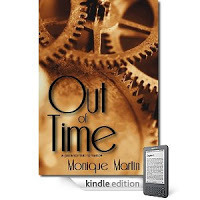 Now, you know more about me than you probably wanted to. Thanks so much for your time, Stuart. It's been wonderful.
Now, you know more about me than you probably wanted to. Thanks so much for your time, Stuart. It's been wonderful.Out of Time Amazon US: http://www.amazon.com/dp/B0036Z9W00Out of Time Amazon UK: https://www.amazon.co.uk/dp/B0036Z9W00Smashwords: http://www.smashwords.com/books/view/17181

Published on October 11, 2010 08:00
October 10, 2010
Whether to use Whose or Who's
[image error]
Image via Wikipedia
Whose: is the possessive form of who, which. 'George Michael wanted to know whose car would be taking him to his next gig.'
Who's: contraction for who is. 'That's the political leader who's taking everybody for a ride.'


Whose: is the possessive form of who, which. 'George Michael wanted to know whose car would be taking him to his next gig.'
Who's: contraction for who is. 'That's the political leader who's taking everybody for a ride.'

Published on October 10, 2010 08:05
October 9, 2010
J B Hendricks, Author Interview
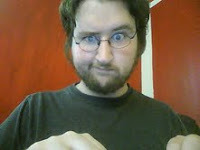 J.B. Hendricks lives in Columbus and is a graduate of The Ohio State University, where he received a Bachelor of Arts degree studying folklore, witchcraft, poetry, and British classics. Currently, he writes fiction with one published novel and many more projects in the works.
J.B. Hendricks lives in Columbus and is a graduate of The Ohio State University, where he received a Bachelor of Arts degree studying folklore, witchcraft, poetry, and British classics. Currently, he writes fiction with one published novel and many more projects in the works.Tell us about your first novel in a few sentences
I've been calling "The Seven Sisters" an epic fantasy, but I'm becoming more and more disenchanted with the term. There's a lot of humor in the book that I think people won't expect if I tell them, "this is an epic fantasy" or "this is sort of like 'The Lord of The Rings.'" In a nutshell, this book is about seven young women with seven special abilities related to the five senses everyone has and two fantastic senses that only exist in the magic world, Gleeb, that they call home. They have this really tremendous adventure that involves them struggling to be reunited, to make sense of all the intrigue around them, and to vanquish the forces of evil. It's not as simple as good versus evil, though. It might seem like it at first, but trust me when I say it's bigger than that.
What qualities do you need to be a successful writer?
Tenacity is important. And a good sense of humor doesn't hurt.
What is your working method?
I like to outline in notebooks and then create the actual story on the computer using the notebooks as references. It's a lot easier than having to juggle a lot of word files at the same time.
What is the single biggest mistake made by beginners to writing?
I know for me, as a long time poet but having never written anything like a novel length story before, it was not realizing just how hard it is to edit your own work on the computer. As if it wasn't trying enough to disect something you yourself wrote and love, staring at a screen for hours and hours lulls you. You get to the point where everything looks good enough. I don't know how it is for other writers, but I need a print copy to mark up if I'm going to get it done right.
How did you come to write this particular book?
I love fantasy novels. I always have. One day, while visiting my brother in New Hampshire, I sat down and started writing one. I never stopped.
If you have a favourite character in your novel, why that particular one?
 Tough question. I develop a pretty strong bond with all my characters. I don't think I can pick just one. Binky the blue nether ape was really fun to write. His ape mannerisms. But he's one of many.
Tough question. I develop a pretty strong bond with all my characters. I don't think I can pick just one. Binky the blue nether ape was really fun to write. His ape mannerisms. But he's one of many.How can people buy your book?
I'm only advertising the Kindle book these days as it's the second edition and much more perfected than the first.
To what extent are grammar and spelling important to a writer?
The difference between lightning and lightning bug is three letters. I think Mark Twain said that.
How much revision of your MS do you do before you send it off?
Lots. Lots and lots and lots.
Where and when is your novel set and why did you make these specific choices?
My novel is set in a magic world called Gleeb. I've always been fascinated by world building. Terry Pratchett's Discworld, Urth, Prydain, Middle Earth, and the like... Great stuff. You can really let your imagination run and, when it gets tired of running, you can give it wings and let it fly. World building, in my opinnion, is the most fun a writer can have creatively. It's totally open. I love that.
To what extent do you think genre is useful in the publishing world?
It's a good means of finding a likely audience, I guess. I like fantasy as a genre because it's broad and inclusive. There's science fantasy, speculative fiction, urban fantasy, magic realism, steampunk, and so on. This suits me because I like to experiment with my writing. I don't like restrictions.
What are your writing habits?
I don't have a strict regime, but I do write every day. Time and place doesn't matter so much to me, but if I don't write for at least a couple of hours every day, never mind the where and when, I feel anxious about it. I'll start muttering things like, "I can't believe I wasted the entire day" even if I've actually accomplished a lot of stuff other than writing.
How do you know where to begin any given story?
I guess it just comes naturally. I actually don't give it too much thought.
What sort of displacement activities keep you from actually writing?
I don't think anything could keep me from writing, but I know what you mean. Mundane stuff does get in the way sometimes, but not often. For better or worse, I'm pretty good at ignoring it.
Do you have support, either from family and friends or a writing group?
I have a great girlfriend whose almost always willing to indulge me when I start ranting about changlings and trolls and her sister's husband, Jimmy Wade, is not only one of my best friends in the world, but also my format editor. My dad and mom are also very supportive. One of the best experiences writing has brought me was when my dad read the book and liked it. It's not that I didn't think he would. I guess I just wasn't prepared for how much he liked it. It was kind of awesome.
Is presentation of the MS as important as most agents and publishers suggest?
As an indie writer, I don't have a lot of experience with what agents and publishers think. I know things are changing in the industry all the time and it's difficult for anyone to set standards anymore. I do believe a good looking thumbnail cover sells better than a bad one. Books are evolving. It's a very exciting time for literature right now.
How long does it normally take you to write a novel?
Well, I've only written one and it was definitely a learning experience. It took me about a year to write "The Seven Sisters" but I'd be willing to bet I'll be able to do another two in the same amount of time now that I really know what I'm doing.
What are your inspirations?
Books. I love to read. Reading, in my opinion, is the most important mental exercise a writer can do.
If there's a single aspect to writing that really frustrates you, what is it?
It's probable that everyone says this, but proof reading really sucks. It's tedious. Creative writing is all work, but none of it feels quite so much like work as proof reading.
Do you think writing is a natural gift or an acquired skill?
I know I wasn't born with it. As a kid, I had to overcome dyslexia and so learning to read and write was no easy thing. I think creativity might be a gift. The rest is just practice and toil.
What are you writing now?
I'm in the process of editing up a book of short stories. By the time this interview gets published, it might even be out already. It's going to be a little different than "The Seven Sisters." It includes a fantasy story and a sci-fi story and a poem, but the rest of the book is comprised of horror stories. I'm also working on a short story book set in Gleeb that I'm going to follow up with a sequel to "The Seven Sisters" at the beginning of next year. But between now and then, who knows? I like to keep a lot of irons in the fire. In his autobiography, "Bio of an Ogre," Piers Anthony talks about working on a lot of things at once to ward of writer's block. That's always worked for me as well.
Is there any aspect of writing that you really enjoy?
I like when I get to be humerous.
Do you have a website or a blog that readers can visit?
Yup. I have a lot of fun here and it's the best place to get the heads up on what I'm currently working on: www.minotaurdreams.blogspot.com
Given unlimited resources, what would be your ideal writing environment?
Wow. Unlimited, huh? I'd write at Charles Dickens's desk in a biodome on Mars with the stars glittering in their multitudes over head and an austere landscape of red sand and dry riverbeds, seemingly endless, stretching out in every direction to the horizon.
Where do you actually write?
I've got a comfortable chair. I sit with my computer in my lap and my cat lying across my legs. My girlfriend bakes and so sometimes I get to smell warm cupcakes or cookies all day. Sure, it isn't Mars, but I like to think I do all right. It could be worse. Like Hunter S. Thompson once wrote, a lot of great books have been written in jail.
Thanks so much for letting me ramble through this thing, Stuart. I think what you do on this blog is really great. Long live fantasy. Long live literature.

Published on October 09, 2010 03:24
October 8, 2010
When to use Their, There and They're.
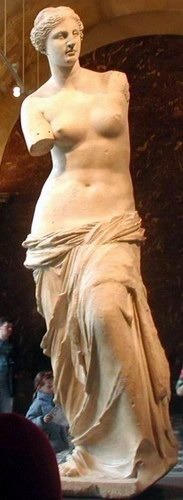 Image via Wikipedia
Image via WikipediaNo real need to confuse these. 'Where are they?' ' They're there, their eyes shining bright with curiosity.'
Their: the possessive form of they, as 'your' is the possessive form of 'you'. 'The politicians conned their constituents, as usual.'
There: in that place, at that point. 'Over there is the statue of the Venus de Milo.'
They're: contraction of they are. 'You can't trust leaders; they're all suffering from personality disorders.'

Published on October 08, 2010 11:25
October 7, 2010
Author Interview with Margaret Blake.
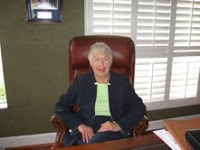 Margaret Blake began writing from a young age, however it was not until her late husband, John, persuaded her to do something about it, that she set about writing seriously. A love of history drew her to writing historical romances she published six. Then, under her Grandmother's name, Ellen Noone, she published five contemporary romances.
Margaret Blake began writing from a young age, however it was not until her late husband, John, persuaded her to do something about it, that she set about writing seriously. A love of history drew her to writing historical romances she published six. Then, under her Grandmother's name, Ellen Noone, she published five contemporary romances.
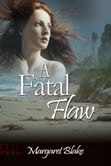 Having missed out on further education, she spent four years in higher education and a further ten years working as a Lecturer and Teacher. She especially loved teaching 'mature students' people like herself who had not been able to continue their education.After retirement and a long trip around Australia and New Zealand she once again took up her pen. Returning to one of her favourite themes, righting the wrongs done to the name of King Richard Third by Tudor propagandists, she wrote
Seed of the Broom
, which was published in e-book format.She has written five romances for publication by Whiskey Creek Press and one historical romantic suspense. The first of these was
Fortune's Folly
, followed by
Eden's Child
,
Beloved Deceiver
and
His Other Wife
.
Having missed out on further education, she spent four years in higher education and a further ten years working as a Lecturer and Teacher. She especially loved teaching 'mature students' people like herself who had not been able to continue their education.After retirement and a long trip around Australia and New Zealand she once again took up her pen. Returning to one of her favourite themes, righting the wrongs done to the name of King Richard Third by Tudor propagandists, she wrote
Seed of the Broom
, which was published in e-book format.She has written five romances for publication by Whiskey Creek Press and one historical romantic suspense. The first of these was
Fortune's Folly
, followed by
Eden's Child
,
Beloved Deceiver
and
His Other Wife
.
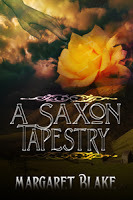 Tell us about A Fatal Flaw in a few sentences.My next book A Fatal Flaw is a contemporary romantic suspense, set in Florida and Cornwall, it is funny as well as serious (I hope!).What qualities do you need to be a successful writer?Your main quality has to be persistence. You have to be prepared to take the knock-backs, pick yourself up and start all over again. It helps if you are an eternal optimist.What is your working method?I like to work in the afternoon when all the chores are done. I write straight onto my computer and I edit the next day. This keeps the story fresh in my mind.
Tell us about A Fatal Flaw in a few sentences.My next book A Fatal Flaw is a contemporary romantic suspense, set in Florida and Cornwall, it is funny as well as serious (I hope!).What qualities do you need to be a successful writer?Your main quality has to be persistence. You have to be prepared to take the knock-backs, pick yourself up and start all over again. It helps if you are an eternal optimist.What is your working method?I like to work in the afternoon when all the chores are done. I write straight onto my computer and I edit the next day. This keeps the story fresh in my mind.
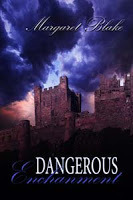 How did you come to write this particular book?I love Florida, can't spend enough time there with my family, and I was inspired by the wonderful countryside, the great music and the fabulous people I've met. Plus I wanted to feature an American cop, seeing as cop shows are my all time favourites. This one is quite a dreamboat too!If you have a favourite character in your novel, why that particular one?The character I am writing about at the time is my favourite. It has to be that way, if I don't really like my characters how can I expect the reader to? I am in love with Ned Rochester at the moment, my cop in A Fatal Flaw, and I really like the zany Cornish girl, Kerensa, I want to be her!
How did you come to write this particular book?I love Florida, can't spend enough time there with my family, and I was inspired by the wonderful countryside, the great music and the fabulous people I've met. Plus I wanted to feature an American cop, seeing as cop shows are my all time favourites. This one is quite a dreamboat too!If you have a favourite character in your novel, why that particular one?The character I am writing about at the time is my favourite. It has to be that way, if I don't really like my characters how can I expect the reader to? I am in love with Ned Rochester at the moment, my cop in A Fatal Flaw, and I really like the zany Cornish girl, Kerensa, I want to be her!
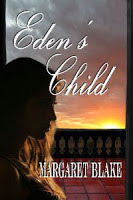 How can people buy your books?A Fatal Flaw is out in October at www.whiskeycreekpress.com and at www.amazon.com. All my other novels are available in print or e-book and on kindle. Check out my website and you will see there are quite a few!Do you have support, from either family and friends or a writing group?
How can people buy your books?A Fatal Flaw is out in October at www.whiskeycreekpress.com and at www.amazon.com. All my other novels are available in print or e-book and on kindle. Check out my website and you will see there are quite a few!Do you have support, from either family and friends or a writing group?
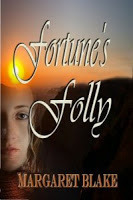 My support comes from my family, they are my greatest inspiration. My late husband John was my very greatest supporter, he would do anything to help me out and he was marvellous at letting everyone know when I had a book out. I miss him terribly.What are your inspirations?
My support comes from my family, they are my greatest inspiration. My late husband John was my very greatest supporter, he would do anything to help me out and he was marvellous at letting everyone know when I had a book out. I miss him terribly.What are your inspirations?
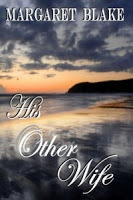 I find places very evocative but where my actual inspiration comes from I don't really know. I can be walking on the beach and an idea pops into my head. I think about what would happen to so and so in a given situation and that really gets me going. I can't actually write a word until I have the names of my characters. Names are really important to me. Sometimes that can be the hardest part.What are you writing now?Currently I have two books on the go; one is a romantic suspense and the other a straightforward contemporary romance. I have had trouble settling to writing since I lost John, but I have about 30,000 words done on both books so I guess hope springs eternal.
I find places very evocative but where my actual inspiration comes from I don't really know. I can be walking on the beach and an idea pops into my head. I think about what would happen to so and so in a given situation and that really gets me going. I can't actually write a word until I have the names of my characters. Names are really important to me. Sometimes that can be the hardest part.What are you writing now?Currently I have two books on the go; one is a romantic suspense and the other a straightforward contemporary romance. I have had trouble settling to writing since I lost John, but I have about 30,000 words done on both books so I guess hope springs eternal.
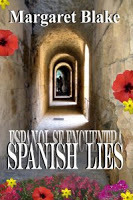
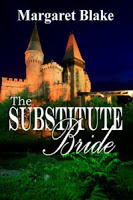 Do you have a website or a blog that readers can visit?Yes please visit www.margaretblake.co.uk and you can leave a comment or get in touch with me.I also blog weekly at www.larkjournals.blogspot.com and www.heroineswithhearts.comGiven unlimited resources, what would be your ideal writing environment?I would love a summer room – built onto the garden, it would be warm and the sun would shine everyday. I would like to say in Italy or the South of France but I know, even if I had unlimited resources, I would not leave my hometown permanently. It would be nice to be able to winter somewhere warm though.Where do you actually write?I have a small bedroom converted to an office, it is very cozy, full of books, and my window looks out onto the main road. If I am stuck for distraction I stare out of the window and am sometimes surprised by what I see!Thank you, Stuart for this opportunity to visit with you.
Do you have a website or a blog that readers can visit?Yes please visit www.margaretblake.co.uk and you can leave a comment or get in touch with me.I also blog weekly at www.larkjournals.blogspot.com and www.heroineswithhearts.comGiven unlimited resources, what would be your ideal writing environment?I would love a summer room – built onto the garden, it would be warm and the sun would shine everyday. I would like to say in Italy or the South of France but I know, even if I had unlimited resources, I would not leave my hometown permanently. It would be nice to be able to winter somewhere warm though.Where do you actually write?I have a small bedroom converted to an office, it is very cozy, full of books, and my window looks out onto the main road. If I am stuck for distraction I stare out of the window and am sometimes surprised by what I see!Thank you, Stuart for this opportunity to visit with you.
Published on October 07, 2010 07:50
October 6, 2010
An Invitation to Published Authors for Interview on This Blog.
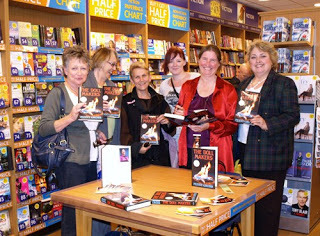 This is an open invitation to all authors, published traditionally, via self-publishing, or in ebook form, to have an interview on my blog. See previous posts for examples.Please provide your own questions and answers, to maximise the appeal of your interview, or give answers to all or any of the questions below, in any order you choose. If you provide a book cover picture and/or portrait of yourself, I will try to use them on the blog. Also, please make sure you let me have links to your blog, website and those places where your book can be bought. A short bio, as an introduction, will make the interview flow more easily and give your readers a better view of you as a writer.Email these as attachments to me using the 'Contact me' link underneath the Welcome.Please use .doc, .docx, or .rtf for text and .jpeg or .jpg for pictures.
This is an open invitation to all authors, published traditionally, via self-publishing, or in ebook form, to have an interview on my blog. See previous posts for examples.Please provide your own questions and answers, to maximise the appeal of your interview, or give answers to all or any of the questions below, in any order you choose. If you provide a book cover picture and/or portrait of yourself, I will try to use them on the blog. Also, please make sure you let me have links to your blog, website and those places where your book can be bought. A short bio, as an introduction, will make the interview flow more easily and give your readers a better view of you as a writer.Email these as attachments to me using the 'Contact me' link underneath the Welcome.Please use .doc, .docx, or .rtf for text and .jpeg or .jpg for pictures.Suggested Author Interview Questions:
1. Tell us about (enter your current book title) in a few sentences.2. How did you come to write this particular book?3. If you have a favourite character in your novel, why that particular one?4. Where and when is your novel set and why did you make these specific choices?5. How can people buy your book(s)?6. What qualities make a successful writer?7. How do you set about writing a piece?8. Beginning writers make many mistakes; what do you think is the most harmful?9. To what extent are grammar and spelling important to a writer?10. How much revision of your MS do you do before you send it off?11. To what extent do you think genre is useful in the publishing world?12. How do you know where to begin any given story?13. What sort of displacement activities keep you from actually writing?14. Do you have support, either from family and friends or a writing group?15. Is presentation of the MS as important as most agents and publishers suggest?16. How long does it normally take you to write a (novel, book, play, poem, story)?17. Who or what inspires you? 18. If there's a single aspect to writing that really frustrates you, what is it?19. Is there any aspect of writing that you really enjoy?20. Do you think writing is a natural gift or an acquired skill?21. What single piece of advice would you give to writers still hoping to be published?22. What are you writing now?23. Do you have a website or a blog that readers can visit?24. Given unlimited resources, what would be your ideal writing environment?25. Where do you actually write?

Published on October 06, 2010 08:00
Using That instead of Who or Whom
Away from all things computer for a couple more days, so keeping things going with scheduled blogs on the language we use as writers. I hope you'll forgive me if I don't reply to any comments until I return from my well-earned rest.
Using That instead of Who or Whom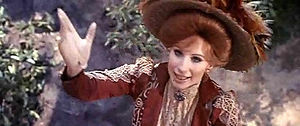 Image via Wikipedia Who or whom; always used when referring to people, especially as individuals. 'That; used when referring to a class, species, or type. 'She's the sort of singer that you want to listen to late at night.'
Image via Wikipedia Who or whom; always used when referring to people, especially as individuals. 'That; used when referring to a class, species, or type. 'She's the sort of singer that you want to listen to late at night.'


Using That instead of Who or Whom
 Image via Wikipedia Who or whom; always used when referring to people, especially as individuals. 'That; used when referring to a class, species, or type. 'She's the sort of singer that you want to listen to late at night.'
Image via Wikipedia Who or whom; always used when referring to people, especially as individuals. 'That; used when referring to a class, species, or type. 'She's the sort of singer that you want to listen to late at night.'
Published on October 06, 2010 00:48
October 5, 2010
When to use That Or Which
Away from all things computer at present and keeping things going with scheduled blogs about language. I hope you'll forgive me if I don't reply to your comments for the moment, but I'm taking a well-earned rest for a couple of weeks.
When to use That Or Which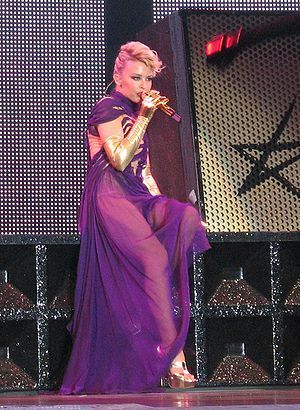 Image via Wikipedia
Image via Wikipedia
Which; usually used before a nonrestrictive clause, one that isn't vital or that simply gives extra information. 'He watched the copied DVD, which he'd been given by a colleague, and discovered the quality was disappointingly poor.'
That; usually introduces restrictive clauses that are vital to the meaning of the sentence. 'The DVD was a compilation of all the videos that Kylie had ever made.'


When to use That Or Which
 Image via Wikipedia
Image via WikipediaWhich; usually used before a nonrestrictive clause, one that isn't vital or that simply gives extra information. 'He watched the copied DVD, which he'd been given by a colleague, and discovered the quality was disappointingly poor.'
That; usually introduces restrictive clauses that are vital to the meaning of the sentence. 'The DVD was a compilation of all the videos that Kylie had ever made.'

Published on October 05, 2010 00:36



